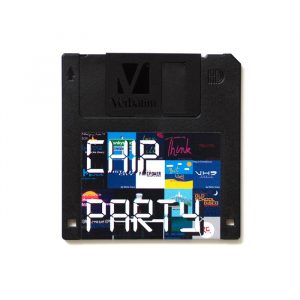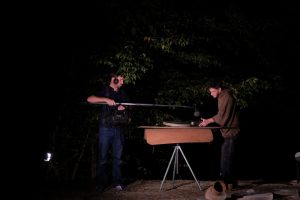Matthew Irvine Brown‘s Rehearsal Joypads began as a response to the marketing of entry-level music software, such as Apple’s Garageband, sold using slogans such as “don’t worry about your musical talent — or lack thereof”.
However, natural aptitude is only one contributing factor to being good at music; others being dedication, patience, stamina, dexterity, etc. According to Brown, technology is unlikely to make much of a difference.
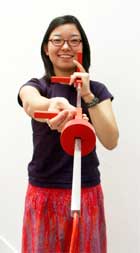
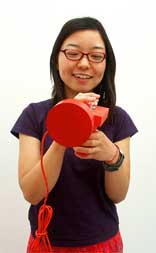
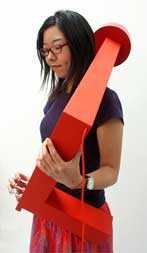 Trombone, cornet and sousaphone version
Trombone, cornet and sousaphone version
In the Rehearsal Joypads the usual controller interface of video game controllers has been replaced by that of a musical instrument. Intended as a product to help learn a specific skill needed to play a real instrument, they have been designed as motivational aids for beginner musicians facing the problems associated with not practicing enough.
Rules of the accompanying video game: play your part correctly (as dictated by the coloured lines scrolling past), and the brass band stays in time and together; play it wrong and they drop their instruments, walking off in disgust. By playing the game repeatedly, the fledgling musician could get the fundamental patterns for scales, arpeggios and so on ‘into the fingers’ before playing the same thing on their real instrument.
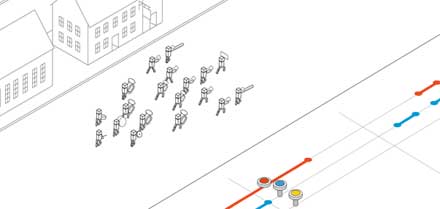
The game design is based on a traditional Whit Friday brass band march contest held in villages in the north of England every June. This came about by realising that the compositional style of marches by the composer William Rimmer (1862 – 1936) is nearly identical to that of Koji Kondo, the composer of nearly all of Nintendo’s best known game music (Super Mario Brothers, Zelda, etc.) The in-game music is a Nintendo-style arrangement of one of Rimmer’s most famous marches – Punchinello.
Listen to the in-game music.
The project won First Prize at the Conran Foundation Student Awards 2006, held as part of the RCA Show 2.
Also by the interaction designer: MIDI controller sock puppet.




